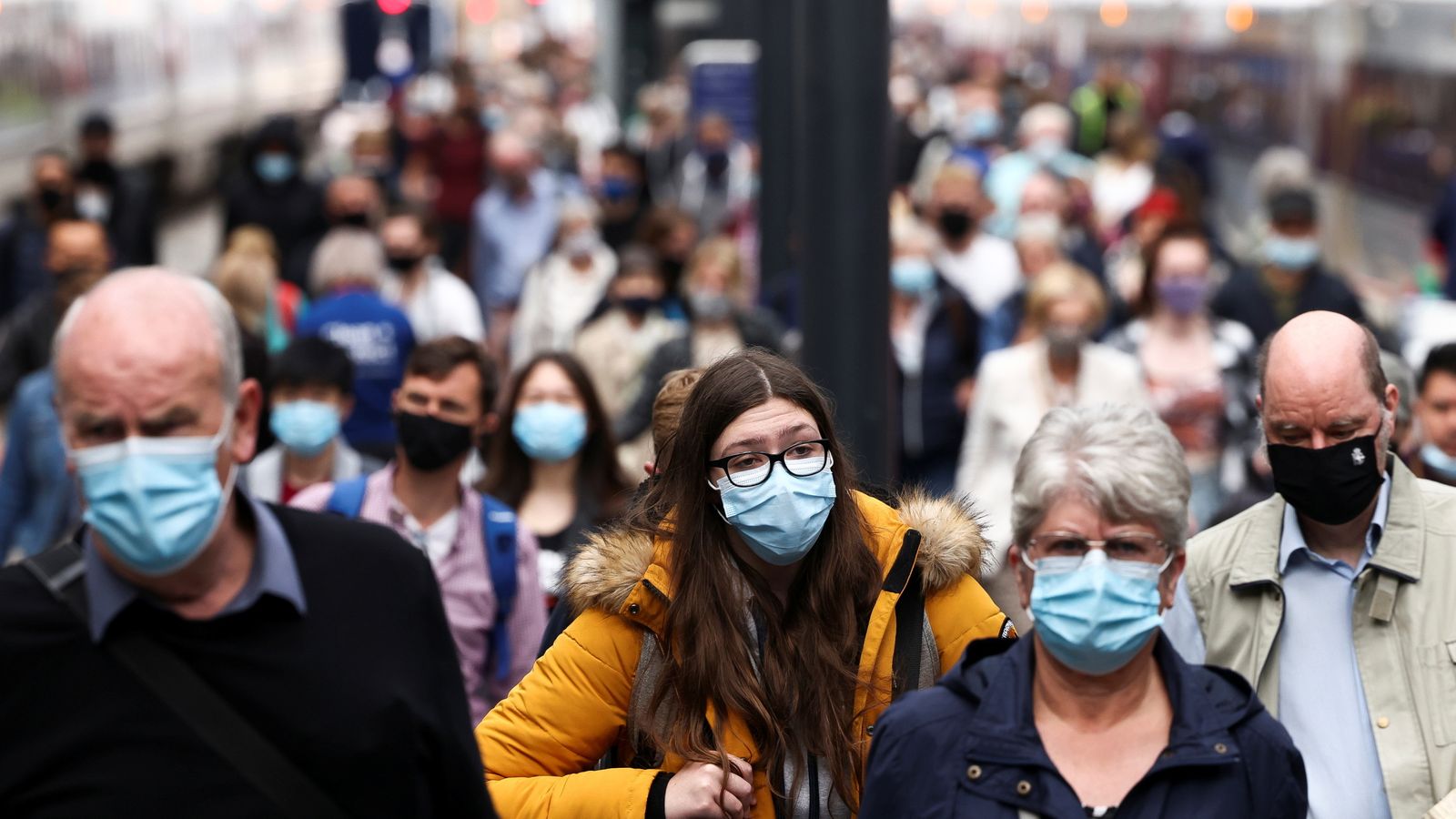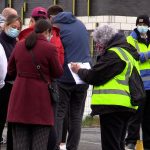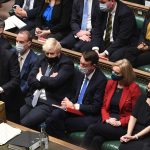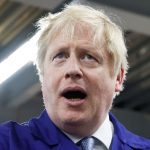The lifting of restrictions could cause friction within communities if government messaging is not clear, Downing Street advisers have warned.
In a paper published on Friday, the Scientific Advisory Group for Emergencies (SAGE) say enforcement of COVID rules “has been difficult at times of lifting” due to the “ambiguity of regulations”.
The government’s advisers note that a perception of lower risk post-lockdown easing “may correspond with increasingly lower rates of adherence to public health measures and an increasing sense that restrictions are unnecessary”.
And they call for “clear messaging” from the government which emphasises “strong levels of compliance” ahead of the final step of lockdown easing on 19 July.
Earlier this year, the Scientific Pandemic Insights Group on Behaviours (Spi-B) said while conflict was not inevitable, it was necessary to take steps to prevent lifting restrictions from igniting or amplifying social tensions.
“It [government guidance] needs to set out in very clear terms what behaviours, activities and venues are not allowed, where and how the boundaries will be drawn, and why,” the latest SAGE documents released on Friday state.
“Among the adult population who have been vaccinated, a view may emerge incorrectly that they are ‘immune’,” the advisers warn.
“As such they may no longer feel that they should be subject to restrictions, making it more difficult for the police to use persuasion.”
They add that additional challenges could come from warm weather which could prompt “large gatherings” over the summer.
The scientific advisers also say the most serious danger to potentially arise from the national relaxation of COVID restrictions is that “restrictions may need to be re-imposed at a local level” if outbreaks occur.
And the data suggests that deprived communities “are more likely to be subject to intervention”.
“Government (national and local) should ensure that messaging relating to outbreak control stresses collective action and goals so as to avoid stigmatisation of certain communities,” the Downing Street advisers add.
“Community representatives should be involved in messaging.”
The scientific advisory group add that the government should “tread especially carefully” in Northern Ireland where there are already accusations that police have “failed to enforce COVID-19 restrictions fairly across communities”.
Follow the Daily podcast on Apple Podcasts, Google Podcasts, Spotify, Spreaker
The warnings come ahead of England’s move to step four of the government’s roadmap on Monday.
Latest data shows the infection rate in England rose to 1 in 95 on 10 July – up from 1 in 160.
On Friday, the UK also recorded 51,870 new cases and 49 deaths.
And the government’s chief medical officer Chris Whitty has warned the number of people in hospital could reach “quite scary” levels within weeks.
The final step of lockdown easing in England was originally planned to take place in June, however last month Prime Minister Boris Johnson announced a delay to ensure more people were vaccinated before the unlocking.
Last week, the prime minister announced the lifting of COVID rules would take place on 19 July and the move would see “almost all” restrictions removed.
Mr Johnson has faced a backlash over the decision to remove the mandatory wearing of face masks – particularly on public transport.
Please use Chrome browser for a more accessible video player
Labour leader Sir Keir Starmer has called for the face coverings rule on trains, buses and planes to remain in place.
And Mayor of London Sadiq Khan has since re-imposed the rule on the Transport for London (TfL) network.
Travellers using public services have still been encouraged by Mr Johnson to wear masks in “crowded and enclosed spaces”.






















